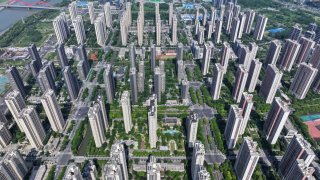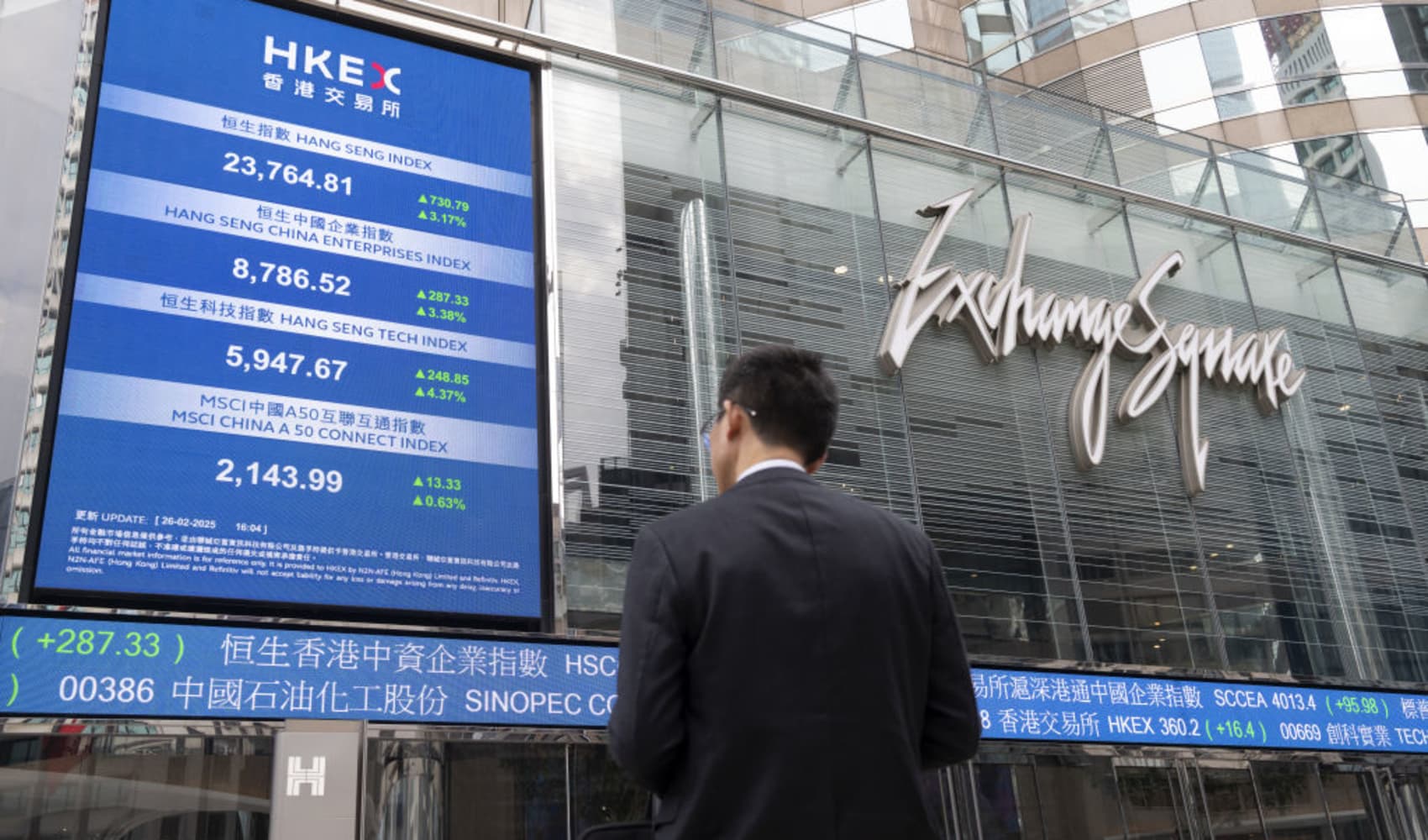
China announced “historic” steps to stabilize the crisis-hit property sector on May 17, 2024, allowing local governments to buy “some” apartments, relaxing mortgage rules and pledging to deliver unfinished homes.
- Shares of most Hong Kong-listed Chinese property stocks surged to their highest levels in over a year, as China's stimulus rally continues.
- The real estate sector was the biggest gainer in the Hang Seng Index on Wednesday.

Shares of most Hong Kong-listed Chinese property stocks surged to their highest levels in over a year, as China's stimulus rally continues.
The real estate sector was the biggest gainer in the Hang Seng Index, with Longfor Group Holdings being the top mover, adding over 25%.
Get top local stories in Philly delivered to you every morning. Sign up for NBC Philadelphia's News Headlines newsletter.
Shares of other real estate developers also saw significant gains. Defaulted developer Shimao Group skyrocketed over 97% while Kaisa Group jumped 45.48%, both notching their highest prices in more than a year.
Similarly, China Overseas Land & Investment climbed 14.33% to hit its highest since last September. China Vanke rose 45.5%.
Hang Lung Properties and China Resources Land gained 12.65% and 7.68% respectively.
Money Report
The wider Hang Seng Index added 5.46%, while the Hang Seng Mainland Properties Index surged over 11.69%. Mainland Chinese markets are closed for the Golden Week holiday.
Over the weekend, major cities in mainland China introduced easing measures to enhance homebuyer confidence, following a series of policy stimulus initiatives from the central bank last Tuesday.
Guangzhou's city government announced that all restrictions on home purchases would be removed starting Monday. Shanghai's reduction of the required tax-paying period also came into effect on Tuesday. Shenzhen has also relaxed purchasing restrictions, allowing buyers to purchase one more apartment in select districts.
"Investors are betting that the recent policy relaxation will lead to a home market recovery, which should help developers with sales and prices," Gary Ng, senior economist at Natixis, told CNBC. Still, he sees challenges with these expectations materializing into reality, especially with inventory pressure in non-tier one cities.
"If home sales do not improve in the next few weeks, it can go back to square one," he said.
While these measures will help stabilize the property market, lifting prices and reviving demand will be a tall order, Morgan Stanley wrote in a note published Wednesday.
"The continued drag from the property sector will leave a sizable shortfall in demand behind, keeping growth below target," the investment bank's Asia-Pacific economists wrote.
Real estate used to account for over 25% of China's GDP, but it has faced a prolonged decline since 2020 following Beijing's crackdown on the sector's excessive debt.
Chinese officials have ramped up support to alleviate financial pressures on households and stabilize the embattled real estate market. However, these previous initiatives have not resulted in significant turnarounds.
"There are more signs of stabilization, but it does not change the fact that China's real estate sector has entered the twilight of the fast-growth era," said Ng.






